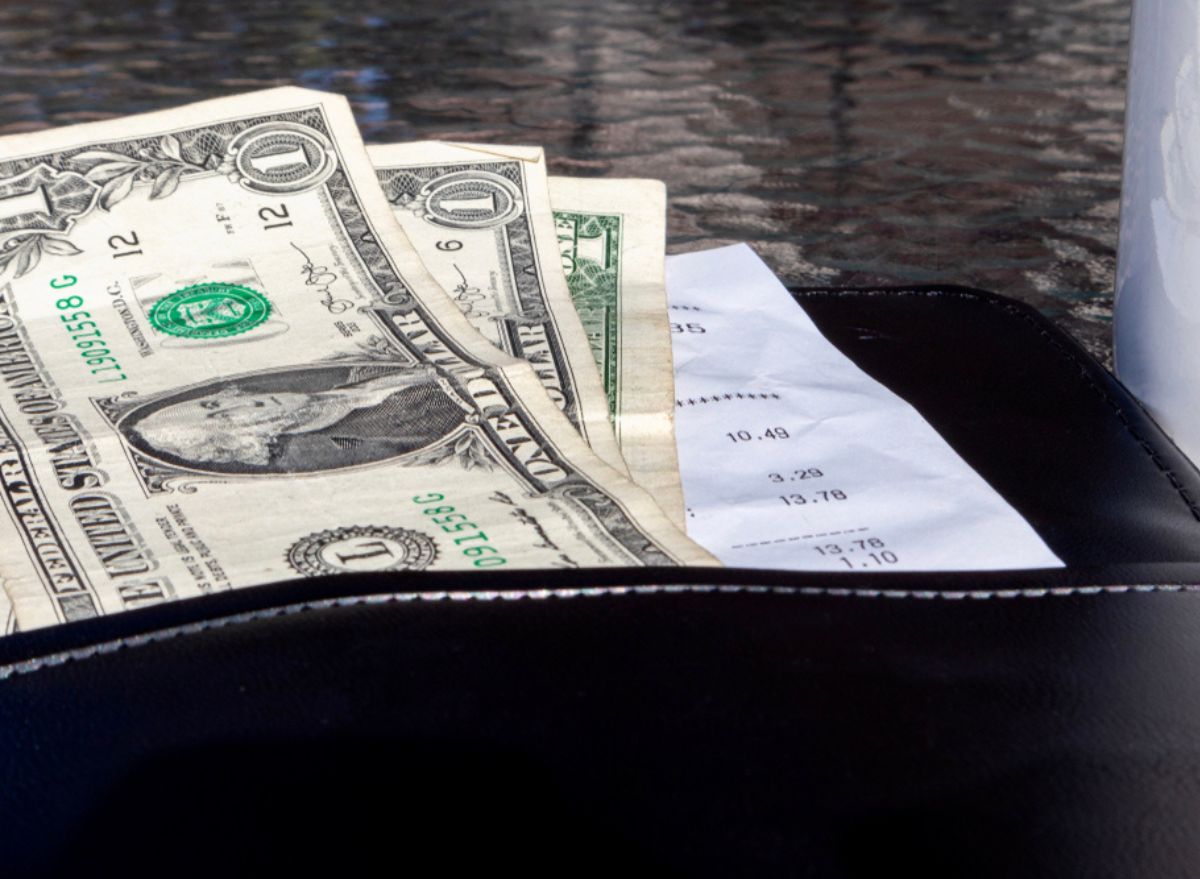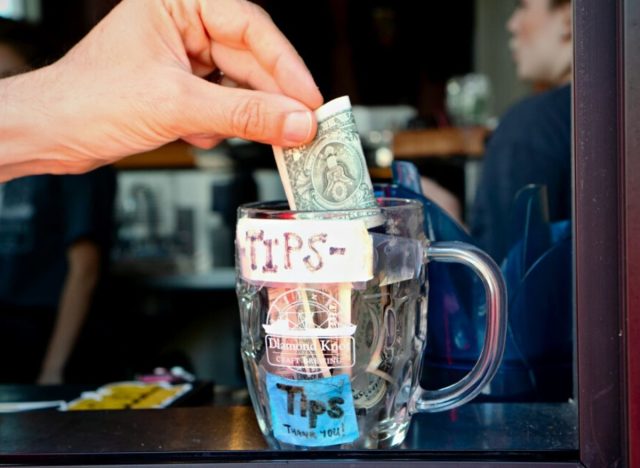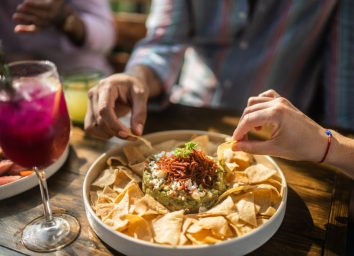4 Situations That Make You Tip More In a Restaurant

The general concept of tipping, or paying a little bit extra for especially great or speedy service, was actually imported from Europe in the 19th century. Ironically, most Americans were incredibly skeptical of the practice at first. For example, six U.S. states flat-out banned tipping in all of its forms in 1915, and the state of Georgia even declared tips as a form of commercial bribery in 1918.
Of course, anyone who has visited an American restaurant over the past century or so knows that America's initial reluctance to embrace tipping didn't last. By the mid-1920s, the vast majority of those anti-tipping laws had been repealed, and amendments made in 1966 to the Fair Labor Standards Act paved the way for the modern domestic tipping customs we know today. Those amendments allowed employers to pay tipped workers a "subminimum wage" under the assumption that tips in combination with lower pay would add up to at least the regular minimum wage.
Fast forward to the present and tipping culture is absolutely ubiquitous across the United States—and not just while sitting down for a meal in a restaurant. Nowadays, patrons are expected to tip for various services, from food deliveries and automated coffee kiosks to housekeeping and haircuts.
Of course, just like virtually every other aspect of consumer behaviors over the past year or so, tipping practices among the general public have almost certainly been impacted by the rampant inflation that has plagued the U.S. economy. While inflation isn't quite as extreme as it was about a year ago (9.1% in June 2022), it's still quite high right now, hovering at around 4%.
To gauge just how much inflation has been influencing Americans' tipping habits, FinanceBuzz recently surveyed a group of 1,000 American adults on their spending and tipping habits. Not all that surprisingly, just about half (49%) admitted that recent inflationary troubles have led them to start tipping less lately.

Besides the unavoidable inflation hanging over pretty much all purchases, the very way in which customers are prompted to tip is changing as well.
"Now everything is cashless because of COVID. When you're signing on the iPad, you're given options which now start at 18%. If I wanted to leave 10%, I have to hit "other," or I can give none. And this is happening in front of the waitstaff, and often there's this strange pressure that is unfortunate," explains Michael Lahr, Ph.D., Distinguished Research Professor, Emeritus at Bloustein School of Planning and Public Policy at Rutgers University.
According to the survey, sitting down for a meal at a restaurant is still by far the most common scenario in which Americans are happy to offer a tip. Nine in 10 respondents said they still regularly tip while dining out. That being said, a number of factors influence the tip amount—both positively and negatively. And these four situations most often lead to bigger tips in restaurants.
Excellent Service
This one may not be particularly shocking, but we all understand how frustrating it can be to sit down at a restaurant and feel like we're being ignored by the wait staff, or perhaps even worse, being treated rudely.
At the end of the day, visiting a restaurant should be an exercise in leisure, not something else to get worked up or upset about. That's why 73% of surveyed adults told researchers they're happy to tip more after getting excellent service. Conversely, the opposite holds true; 70% are sure to tip less upon encountering unpleasant or poor service.
The Check Is Dropped Off By a Waiter
There are seemingly endless ways to pay these days. Automated kiosks, pay-at-the-table systems, and mobile apps, are just a few examples, and that's not even taking into account the growing number of robotic servers dropping off checks to customers at numerous restaurants.
According to the survey, however, patrons still prefer to have their check dropped off by a living, breathing human being. Over a quarter of participants (26%) tip more when the check is brought to the table by a waiter.
Paying In Cash
Money talks, and low tips still walk when it comes to restaurant service. A full quarter (25%) of respondents usually tip more while paying with cash. On the other hand, it's worth mentioning another 11% of surveyed adults are actually stingier with their greenbacks. This cohort tips less while paying in cash at restaurants.
Paying In Front Of a Server
Restaurants are a great place to kick back, relax, and enjoy a delicious meal in a social setting, but they aren't exactly private. Patrons may feel a pair of prying eyes pressed upon them as they reach for their wallets and inspect the bill.
In all, 16% of surveyed adults admit they tend to tip more when they know their waiter is watching them. Another 11% take the opposite approach, opting for a lower tip if they feel a server is hovering too close.
Other Noteworthy Findings
Now that we've established the situations conducive to a hefty tip, what about the other way around? What situations make customers less generous?
The top tip deflator while dining out among respondents was undoubtedly paying using a self-checkout system that asks for tips. An astounding 33% of adults said they tip less in this scenario. Another 19% tip less while using a tip screen at a register.
Interestingly, respondents were also asked about tipping habits while ordering food for delivery. Nearly half (43%) said how long the delivery takes is "extremely important" in terms of determining the tip amount. Nearly an identical percentage (42.40%) said the same regarding the delivery person's professionalism.









